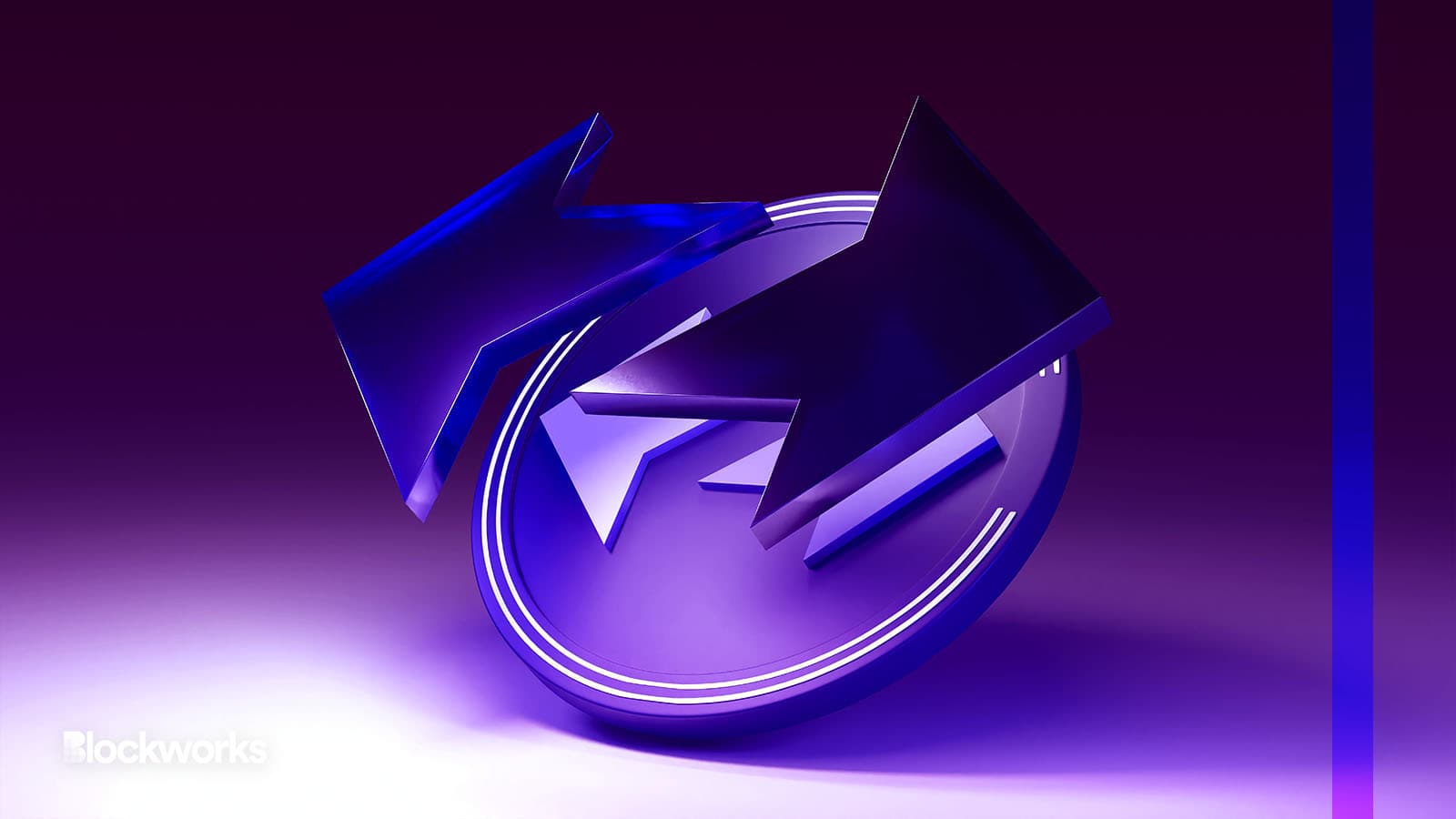ZkSync’s zkEVM ‘Era’ Opens to the Public
Matter Labs moves zkSync Era into public alpha phase at 10:00 am ET Friday

Source: Shutterstock / CryptoFX, modified by Blockworks
Ethereum has a new scaling solution reaching public mainnet, going live Friday. ZkSync’s EVM-compatible zero-knowledge proof-based rollup is open to the public from 10:00 am ET.
The zkEVM, which rebranded to zkSync Era last month, has been open to developers-only since October 2022. But now the proverbial training wheels are coming off and the public will have their first chance to interact with dapps on the platform.
ZkSync Era was previously known as zkSync 2.0, and its 1.0 cousin, launched by developer Matter Labs in December 2020, remains live as zkSync Lite.
A rival zkEVM from Polygon was announced in mid-February and its equivalent offering, which the team calls “Mainnet Beta,” is expected to go live on Monday, March 27.
So, the zkSync folks can lay claim to being “the world’s first zkEVM mainnet,” if only by a weekend.
Matter Labs’ co-founder and CEO Alex Gluchowski told Blockworks the timing is coincidental, and Era’s alpha launch milestone is arriving right on schedule, following the completion of a second public security contest via Code4rena.
“Now we feel completely safe to launch,” Gluchowski said, stressing that the testing of the product has been extensive.
The developers spent $3.8 million on testing and auditing, according to a statement shared with Blockworks, including seven independent security audits — one with leading auditor OpenZeppelin — and an open-ended bug bounty program with Immunefi.
“You really need this layered approach to security,” Gluchowski said, adding, “Now we feel comfortable, but I mean it’s still Alpha — people have to understand it’s still brand new technology.”
He pointed to the recent exploit of Euler Finance, whose smart contracts were audited by a reputable firm and were live for the better part of a year, as an example of how audits alone aren’t enough.
The combination of external and internal audits, public security contests and bug bounties and a developer gated release, Gluchowki thinks should be industry standard practice.
The zkSync Era code is also fully open-source, including the prover, which the team sees as a competitive differentiator.
“We open-sourced everything the moment we opened the network to developers — as we promised — under a permissive MIT Apache 2 License,” Gluchowski said, explaining the rationale is that they “believe it’s fundamental to crypto have the code open-source and forkable, because that’s tied to the ethos and values of Ethereum.”
Another key feature is native account abstraction, which will allow Era users to pay transaction fees in any token or even let dapp developers pay users’ fees.
Looking forward: Decentralization
There remain guardrails in place, such as a delay period for withdrawals, initially set to 24 hours, but which will be reduced gradually, Gluchowski said.
“In the initial phase, we will be still running the sequencer [and] we have the right to upgrade the contracts — it’s not yet fully decentralized,” he said.
The plan is to follow a similar approach to that of zkSync Lite, which has a security council that supervises protocol upgrades.
“We can’t guarantee that there are no problems, we encourage people to experiment slowly,” Gluchowski said.
Get the news in your inbox. Explore Blockworks newsletters:
- The Breakdown: Decoding crypto and the markets. Daily.
- 0xResearch: Alpha in your inbox. Think like an analyst.






